espionage
Canada Lawmakers Helped Foreign Powers Influence Elections, Report Alleges
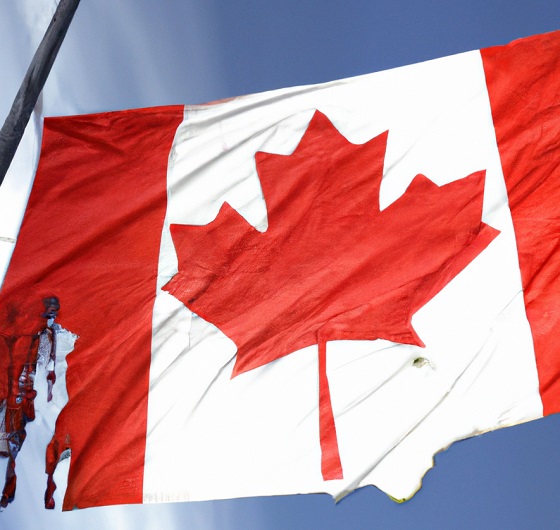
 From the Daily Caller News Foundation
From the Daily Caller News Foundation
The Canadian Parliament’s National Security Committee implicated multiple parliament members of “semi-witting or witting” cooperation with foreign powers to influence elections, according to a recent report.
The National Security and Intelligence Committee of Parliamentarians (NSICOP) supported their findings with 4,000 documents totaling 33,000 pages. Their findings allege “pervasive and sophisticated foreign interference” in Canadian politics, including allegations that multiple unnamed parliament members worked with foreign actors to influence elections and campaigns in 2019 and 2021.
China was called the most “prolific actor,” according to the report.
The NSICOP says alleged illegal activities by the Parliament members is unlikely to net criminal charges, citing in the report the difficulty of using classified information in judicial proceedings.
Opposition members to Prime Minister Justin Trudeau’s Liberal Party have pressured the government to release the names of the alleged implicated parliament members. Conservative Party Leader Pierre Poilievre spoke last Wednesday during question time in Parliament, demanding the names be revealed.
“The National Security Committee indicates there are members of this House who have knowingly worked for foreign hostile governments. Canadians have a right to know who and what is the information,” Poilievre said, “Who are they?”
So far, the government has not committed to releasing the names of the parliamentarians responsible. Public Safety Minister Dominic LeBlanc pushed back on releasing the names of the MPs in response to Poilievre.
“The leader of the opposition knows very well no government, including the government [of] which he was a member, is going to discuss particularities of intelligence information publicly. So he knows better than that,” LeBlanc said in the House of Commons. “He would be much more informed than he is now and we would invite him to do so, so he wouldn’t stand up and cast aspersions on the floor of the House of Commons without any information whatsoever.”
The report comes after previous investigations into foreign involvement in Canadian politics and society. Last September, Trudeau’s government charged Quebec Judge Marie-Josée Hogue to investigate foreign interference in elections after some alleged that China aided in mustering voters against a conservative candidate in Western Canada and helping elect a Liberal in Toronto, according to Politico.
The previous report from the NSICOP in 2019 did not specifically focus on the federal election that year, and instead was broader in scope, says the report.
espionage
“Suitcase of Cash” and Secret Meeting Deepen Britain’s Beijing Espionage Crisis
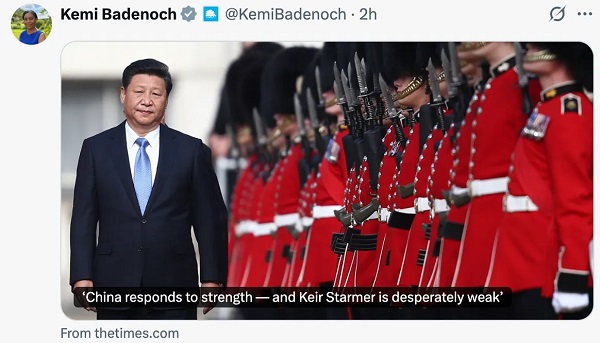
Britain’s most consequential espionage scandal in a generation has narrowed on Keir Starmer’s inner cabinet after The Sunday Times revealed that alleged Chinese agent Christopher Berry was intercepted at Heathrow Airport with a “suitcase full of cash” — and that senior officials, including National Security Adviser Jonathan Powell and Cabinet Secretary Christopher Wormald, held a closed-door meeting, allegedly discussing that advancing the case would harm relations with Beijing, weeks before prosecutors abandoned the insider-threat file.
The revelations, combined with an explosive Opposition letter from Kemi Badenoch and a rare diplomatic intervention from Washington, have plunged Prime Minister Keir Starmer’s government into the most serious national-security controversy of its tenure — one now shaking both Westminster and the Five Eyes intelligence alliance. Not since the Kim Philby affair and the exposure of the Cambridge Spy Ring has a British government been so roiled by allegations of insider compromise and appeasement toward a hostile foreign state.
As The Sunday Times reported, Christopher Berry — a 33-year-old academic from Oxfordshire — was stopped under the Terrorism and Border Security Act after a February 2023 flight from China. Police seized £4,000 in cash, believed to have been supplied by his Chinese handler, codenamed “Alex,” linked to the Ministry of State Security.
A witness statement tabled in Parliament last week indicated that Berry funnelled real-time political intelligence through his MSS handler to one of Beijing’s senior leaders, all collected from a former Chinese teaching colleague — a Parliamentary researcher with deep access to senior Conservative MPs. Beijing reportedly viewed those MPs as a strategic threat, fearing that if they rose to higher office they would adopt a far stricter stance toward China’s geopolitical ambitions.
Though Berry was not detained at the time, the incident became central to the espionage case later dropped by the Crown Prosecution Service when the Starmer government declined to certify that China posed an “ongoing threat to national security” — a legal requirement under the Official Secrets Act.
The Sunday Times also revealed that Deputy National Security Adviser Matthew Collins, the government’s sole witness, privately acknowledged that the decision not to describe China as an “ongoing threat” was “political.” The paper further disclosed that Jonathan Powell — a former banking executive who rose to become Starmer’s National Security Adviser — chaired a meeting on September 1 attended by Cabinet Secretary Christopher Wormald and MI5 Director-General Sir Ken McCallum, in which “the general theme of discussion was how the UK’s relationship with China was going to be damaged by this case.”
If accurate, that account directly contradicts Starmer’s assurance to Parliament that “no minister or special adviser was involved.” The implication — that Britain’s most senior national-security officials were weighing diplomatic consequences while an active espionage prosecution was still underway — has intensified accusations that the case was derailed by political interference rather than evidentiary weakness.
Within hours of the Sunday Times story, Opposition Leader Kemi Badenoch posted a letter to X accusing Keir Starmer of misleading Parliament and concealing ministerial involvement in the case’s collapse.
Framing the letter, Badenoch sought to explain the rapidly evolving affair to a wider audience. “I don’t blame you if you’ve struggled to follow the China spying case engulfing Parliament. Even MPs are finding it hard to keep up with a story that seems to change by the hour,” she wrote. “I suspect many fair-minded people have assumed this story can’t contain much. It seems too implausible for the government to have deliberately let off people who were accused of spying on MPs. But the story is truly astonishing. The layers of it have unravelled over the past few weeks like something from a spy novel.”
In the letter itself, Badenoch demands full disclosure of all correspondence, meetings, and witness-statement revisions involving Jonathan Powell, the Attorney General, or the Cabinet Office. She references the Sunday Times account directly, noting that “Powell left attendees with the understanding that Deputy National Security Adviser Collins’s witness statement would operate within the language of the report,” implying foreknowledge and coordination between Downing Street and prosecutors. She further alleges that Starmer’s ministers “softened” later witness statements to downplay Chinese espionage, replacing hard intelligence assessments with diplomatic phrasing designed to reassure Beijing. Her conclusion is cutting: “You have shown Britain is weak in the face of espionage, and have emboldened our enemies to believe they can spy on us with impunity.”
As reported previously by The Bureau, the controversy has now drawn international concern. The Chair of the U.S. House Select Committee on the Chinese Communist Party, John Moolenaar, has issued an extraordinary public rebuke on the court matter — a move almost without precedent between close allies. In a two-page letter dated October 16, 2025, addressed to James Roscoe, chargé d’affaires at the British Embassy in Washington, Moolenaar warned that Britain’s decision to abandon the prosecution risked setting “a dangerous precedent that foreign adversaries can target democratically elected legislators with impunity.” He wrote that the decision “deeply troubles” U.S. lawmakers and “undermines Five Eyes security coordination,” given the substantial amount of evidence against Berry and Christopher Cash, who were accused of funnelling parliamentary intelligence to the Chinese Communist Party.
“I hope the UK government will not allow this case to falter,” Moolenaar said, “and will instead take the steps necessary to ensure that both justice and due process are served.”
The letter, co-signed by senior members of the Committee and publicly released by Congress, marks an exceptional public intervention in a live national-security case involving a Five Eyes partner. Moolenaar added that the decision to drop the prosecution — despite evidence confirming a direct intelligence channel from Westminster to Beijing — “paints a concerning picture,” noting the resumption of high-level UK–China trade talks, negotiations over China’s proposed “super embassy” in London, and London’s ongoing review of its diplomatic posture toward Beijing. “Allowing this PRC aggression to go unchecked,” he warned, “would only incentivize the CCP to further interfere in Western democracies.”
As The Bureau previously detailed, Matthew Collins’s witness statement traced an intelligence pipeline connecting Westminster directly to Beijing’s leadership. Berry, via his handler “Alex,” transmitted reports obtained from Christopher Cash, a parliamentary aide with access to Conservative MPs critical of Beijing. Collins confirmed that some of the same intelligence later appeared in the possession of a senior CCP Politburo Standing Committee member — reportedly Cai Qi, one of Xi Jinping’s closest allies. Collins also documented Beijing’s targeted inquiries into the 2022 Conservative leadership race, focusing on Tom Tugendhat and Neil O’Brien, both members of the China Research Group (CRG) and long-standing critics of the CCP.
Taken together, the Heathrow cash seizure, the Powell-chaired meeting, the Badenoch letter, and the U.S. congressional intervention point to a modern Cold War crisis — a confrontation that has now moved beyond Westminster to test the cohesion of the Western alliance itself.
The Bureau is a reader-supported publication.
To receive new posts and support my work, consider becoming a free or paid subscriber.
espionage
PEI to Ottawa: Investigate CCP Footprints—Now
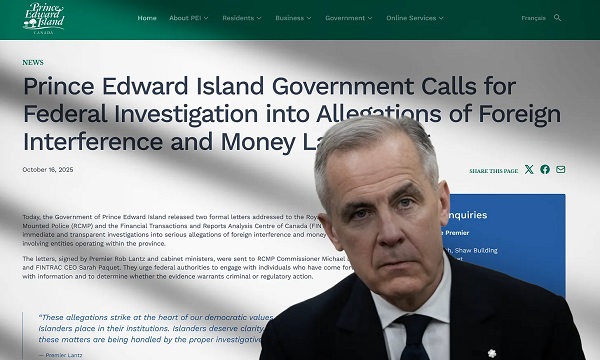
A tiny province just did what the federal government refuses to: demand answers about foreign interference and Chinese money.
Prince Edward Island’s new government just lit a signal fire Ottawa can’t ignore—two formal letters demanding immediate, transparent federal investigations into alleged foreign interference and money laundering on the Island. One to RCMP Commissioner Michael Duheme, the other to FINTRAC CEO Sarah Paquet. Clear, direct, no hedging: talk to the whistleblowers, follow the money, and determine whether criminal or regulatory action is warranted.
And here’s the part that should make every sane person furious: why did it take a new government to do the obvious? Where was this urgency from the last crew running Charlottetown? For years, Islanders were told to calm down, look away, don’t ask questions—and now, in week one of grown-up supervision, we suddenly discover the tools were always there. Why didn’t the previous government pull them?
Even worse, why hasn’t the Liberal establishment in Ottawa barley lifted a finger in regards to foreign interference in this country? This is the same crowd that held a public inquiry into foreign interference, took victory laps, and then… parked the file. The commission issued volumes of findings and 50-plus recommendations, but action? Mostly press releases. Meanwhile, the much-hyped foreign influence registry —passed on paper in 2024— still isn’t fully in force, with cabinet dithering while everyone pretends it’s complicated. If the smallest province can move in days, what’s Ottawa’s excuse after years of warnings and a law they already passed?
Premier Rob Lantz framed it plainly: Islanders deserve clarity and competent, depoliticized scrutiny. The province says the move follows years of speculation and a Parliament Hill press conference on Oct. 8 where a former RCMP superintendent suggested evidence could justify a criminal probe centered on PEI. Translation: this is no longer a fringe concern—it’s now an official paper trail with the RCMP and FINTRAC on the hook.
PEI also reminded Ottawa that in February 2025 it ordered the Island Regulatory and Appeals Commission (IRAC) to run an independent land-ownership investigation—with new powers added to the Lands Protection Act in 2022—amid public questions about complex land purchases and potential indirect control. That review is ongoing and now sits alongside the requested federal probes.
Context matters: investigative reporting in recent weeks connected these concerns to Buddhist-affiliated networks and called for a wider federal inquiry. Whether every allegation holds or not, PEI’s letters escalate the file from media claims to formal federal scrutiny—exactly where it belongs if Canada is serious about foreign interference.
Bottom line: a tiny province—Prince Edward Island of all places—just forced a national reckoning. Not Toronto, not Ottawa, not some vaunted federal intelligence agency. No, it took 160,000 salt-of-the-earth Islanders to do what the entire Liberal Party has refused to do for years: demand an investigation into what looks suspiciously like CCP-linked land grabs, money laundering, and political influence operations happening right under our noses.
And yet—silence from Ottawa. Why? Because could it be that the same people now running the show in this country are the ones who spent the last decade cheerleading for the Chinese Communist Party? Mark Carney, has a track record with China that reads like a LinkedIn endorsement from the People’s Liberation Army. Brookfield, where Carney was Vice Chair, took $250 million from the Bank of China to fund its real estate empire. You think that doesn’t come with strings? Please.
And Trudeau? Let’s not forget, this is the man who once said he admired China’s “basic dictatorship”—because, of course he did. That kind of centralized control makes things so efficient when you’re trying to crush dissent and funnel wealth into the hands of a compliant elite.
The ball is in the RCMP and FINTRAC’s court. But if you’re expecting urgency from institutions shackled to the same political class that let this rot take hold, don’t hold your breath. PEI just did the hard part. Now we get to find out if Canada has any real institutions left.
Subscribe to The Opposition with Dan Knight
-

 Alberta1 day ago
Alberta1 day agoClick here to help choose Alberta’s new licence plate design
-

 National1 day ago
National1 day agoDemocracy Watch Renews Push for Independent Prosecutor in SNC-Lavalin Case
-

 Business1 day ago
Business1 day agoOver two thirds of Canadians say Ottawa should reduce size of federal bureaucracy
-
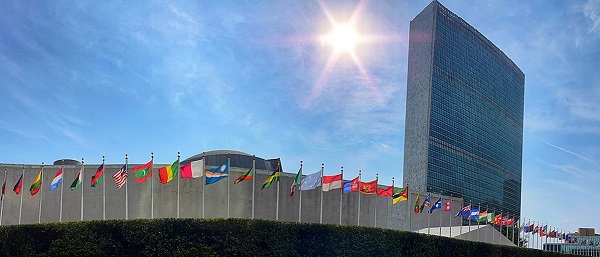
 Business2 days ago
Business2 days agoTrump Admin Blows Up UN ‘Global Green New Scam’ Tax Push, Forcing Pullback
-

 Business2 days ago
Business2 days agoTrump Blocks UN’s Back Door Carbon Tax
-
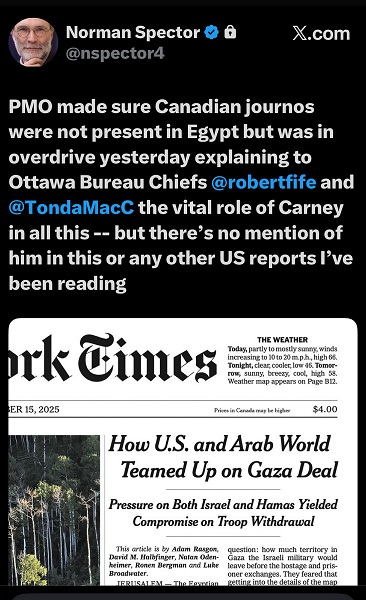
 Media1 day ago
Media1 day agoCanada’s top Parliamentary reporters easily manipulated by the PMO’s “anonymous sources”
-

 Red Deer2 days ago
Red Deer2 days agoYour last minute election prep: Common Sense Red Deer talks to the candidates
-

 Agriculture1 day ago
Agriculture1 day agoIs the CFIA a Rogue Agency or Just Taking Orders from a Rogue Federal Government?








